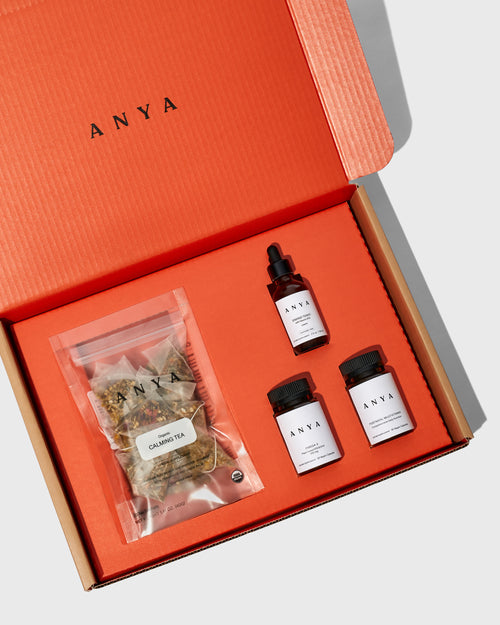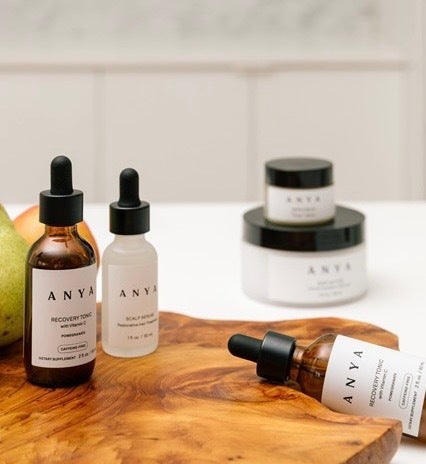Everyone from your OB-GYN to strangers in the supermarket will remind you to take your prenatals, but meeting nutritional needs after childbirth is also critical—for healing, energy, mental health, and if you’re nursing, your baby’s nutrition.
“When you’re growing a fetus, your needs are much different than when you're trying to recover,” says Registered Dietitian Julie Devinsky, which is why it’s important to switch from a prenatal vitamin to a postnatal vitamin after birth.
These two vegan capsules—one multivitamin and one omega-3 supplement—taken daily, provide the 15 nutrients at the right levels that you need to optimize your postpartum health.
Pregnant? Schedule ahead to have it arrive near your due date. Postpartum? Start today and continue taking for at least a year after birth.
Shop now
The Top 15 Nutrients for Postpartum Health
1. Iron
New mothers need iron for recovery and to support blood loss, but too much of a good thing isn’t helpful either. “On an ongoing basis, needs are not as high as they were during pregnancy, and iron can be harsh on the system and can cause GI upset.” Anya’s postnatal is a 100% vegan way for plant-based moms to get enough daily.
2. Choline
“In the baby, choline helps with the hippocampus development, which we call the memory center of the brain,” Devinsky says, pointing out that this is especially important for nursing mothers. “It can also affect attention and problem solving, and the baby's choline status depends on how much the mother has.” This nutrient also supports metabolism and the immune system, and if eggs and organ meats aren’t on the menu, it’s hard to get from diet alone.
3. Vitamin D3
This staple nutrient supports immune function and is associated with decreased instances of postpartum depression. It’s often difficult for new mothers to get enough sun exposure to meet the daily requirement, and if your diet leans plant-based, supplementing is often necessary.
4. Magnesium
An essential micronutrient for bone and heart health, and without enough of it, your body can’t activate the nutritional benefits of vitamin D—but most women don’t get enough. One study found that 10 out of 11 otherwise healthy women were missing the DRI mark for magnesium.
5. Boron
Getting enough boron is necessary for the body to metabolize calcium, magnesium, and vitamin D. Boron is crucial. Consider boron a VIP on both the pre- and postnatal nutrient list.
6. Vitamin K2
“This is one of the most important vitamins to be supplementing,” Devinsky says. “It’s found mostly in fermented foods, which are rare in western diets.” Vitamin K2 supports bone health and prevents osteoporosis.
7. Vitamin C
It’s especially important for nursing moms to get their DRI, since the vitamin C in breastmilk comes from the maternal diet, not stored nutrients—and it’s a key milk antioxidant. This vitamin also supports immune function.
8. EPA + DHA Omega-3s
Omega-3s support brain development for babies, have been linked to decreased risk of postpartum depression and reducing inflammation for moms (nursing or not), and don’t have to taste fishy. The ANYA Omega-3 is vegan and gets nutrients from algal oils.
9. Vitamin B12
“B vitamins are critical to energy metabolism,” Devinsky says. “They help convert fat and protein into energy, and almost every cell uses B12. “We chose B12 over B-complex in ANYA, because it's harder to get through diet, and new moms need more of it.”
10. Folate
“We hear so much about the importance of folate for the baby, but mom needs it for healthy blood too,” says Lizzy Swick, RDN. “Low folate levels might increase a woman's risk of postpartum depression.”
11. Biotin
Biotin continues to support metabolism and energy conversion after childbirth—and may also help the postpartum shedding many women experience.
12. Iodine
“Iodine is critical for a baby’s growth and development, and essential for proper thyroid development,” Devinsky says. Because iodine needs increase after childbirth, many organizations recommend supplementing to reach the DRI.
13. Zinc
Another key nutrient that decreases after pregnancy, immunity-boosting zinc is especially important for lactating mothers. Babies get this nutrient from breastmilk, and levels naturally go down after childbirth.
14. Vitamin A
Supportive for immunity, vision, and tissue growth for all women, nursing moms also transfer vitamin A to babies via breast milk. Newborns have low stores of vitamin A, and supplementing can help restore and sustain levels for both mother and baby.
15. Vitamin E
Babies are born with low stores of vitamin E, which is important for immunity, muscle development, and for helping their lungs get used to breathing oxygen. For moms, it’s important for skin, eyesight, and immunity, and while there are many ways to get it from food, the postpartum lifestyle can make it hard to keep it 100 percent.
Written in partnership with Registered Dietitian, Julie Devinsky. Julie is an adviser to Anya.






